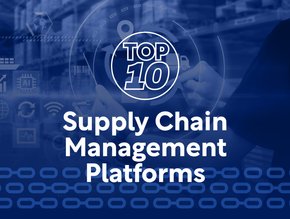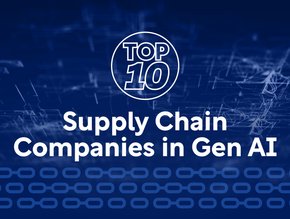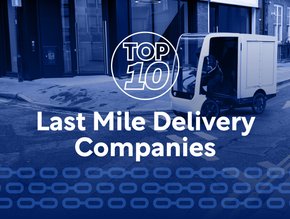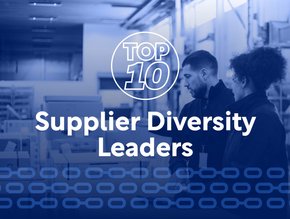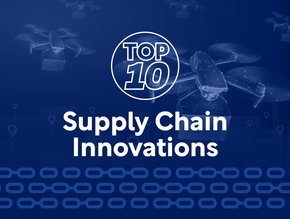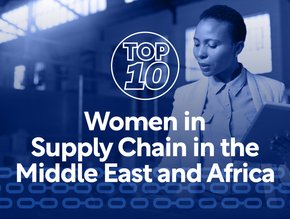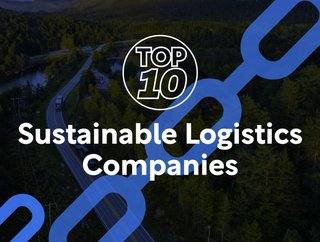
01. DHL Supply Chain
CEO: Oscar de Bok
DHL Supply Chain is a division of Deutsche Post DHL Group, one of the world's largest logistics companies. By 2030, the company aims to achieve the following objectives: invest €7 billion to reduce greenhouse gas; reduce annual GHG emissions to under 29 million metric tons; and electrify 60% of its last-mile delivery vehicles; increase the share of sustainable fuels to over 30%; increase the share of green electricity to over 90% globally; install sustainable heating in more than 50% of its buildings; and offer green alternatives for 100% of all core products and services.
02. XPO Logistics
CEO: Mario Harik
XPO is a leading innovator of transport services in Europe, including technology-enabled truckload, less-than-truckload, truck brokerage, managed transport, last mile and freight forwarding. It serves approximately 48,000 customers with 554 locations and 38,000 employees.
The company has implemented a sustainability programme encompassing all areas of its business – from fleet management and route optimisation to energy efficiency in its facilities globally.
It recently invested in aLow Emissions Sustainable Solution that provides a fuel using hydrotreated vegetable oil, which can reduce CO2 emissions by up to 90%, the company says.
03. FedEx
CEO: Raj Subramaniam
US-based FedEx operates through multiple subsidiaries – including Fe4dEx Freight and FedEx Express – that cater to specific segments of the logistics industry. It employs 660,000 people worldwide.
The company seeks to “deliver a more sustainable future”, and uses a data-based approach called FedEx Sustainability Insights, an emissions reporting tool.
“Our expert teams work with certified suppliers across our offerings, and our tailored approach ensures you always receive the most fit-for-purpose solution for your business's decarbonisation,” the company says.
04. CEVA Logistics
CEO: Mathieu Friedberg
CEVA Logistics was founded in 2007 following the merger of TNT Logistics and EGL Eagle Global Logistics. It has 750 warehouses worldwide, and offers end-to-end supply chain solutions. It employs 78,000 people globally.
The company says its mission is to contribute to sustainable globalisation through “better balanced economic trade that fosters both economic and social development while respecting the integrity of all men and women and the planet.” The group’s sustainability policy is based on three pillars: People, Planet and Fair Trade.
05. A.P. Moller – Maersk
CEO: Vincent Clerc
Maersk is a Danish integrated container logistics company and the world's largest container shipping company, with a fleet of 700 vessels.
“In 2023, we worked closely with our customers, stakeholders and partners to deliver concrete progress on our ESG commitments,” says Vincent Clerc, CEO of Maersk.
Maersk has become the first shipping company to be recognised by the Science-Based Targets initiative for its decarbonisation goals.
Maersk targets include a 35% reduction in Scope 1 emissions by 2030. The 2040 target aims for a 96% reduction in Scope 1 and 2 emissions, plus cutting Scope 3 emissions by 90%.
06. Kuehne + Nagel
CEO: Stefan Paul
Kuehne + Nagel is a global logistics company headquartered in Switzerland, and employs 78,0000 people. It operates in 100 countries, and has a network of strategically located offices, warehouses, and distribution centres.
The company is committed to the UN’s Science-Based Target initiative and is transitioning to a zero carbon business model. Its diversity and inclusion policy is driven by its Balance and Belonging programme. “Through responsible business practices, we’re committed to meeting the UN Global Compact and UN Sustainable Development Goals,” the company says.
07. Geodis
CEO: Marie-Christine Lombard
France-based global logistics and supply chain operator Geodis is based in 120 countries and has a workforce of 41,000 employees.
Its sustainability measures include optimising routes, reducing empty miles, and maximising vehicle use to minimise fuel consumption and emissions. It also collaborates with suppliers to ensure responsible sourcing practices, reducing waste in packaging and transportation and promoting ethical labour practices.
08. DSV Panalpina
CEO: Jens Bjørn Andersen
DSV Panalpina offers air and sea freight, road transport, contract logistics, and supply chain solutions. It was formed by the merger of DSV A/S and Panalpina World Transport in 2019, and employs 70,000 people across 90 countries.
It has developed a Green Logistics programme that includes CO2 reporting, supply chain optimisation, sustainable warehousing to sustainable fuels and carbon offsetting. Each solution is designed to reduce the carbon footprint of customer supply chains.
09. DB Schenker
CEO: Jochen Thewes
DB Schenker is part of the Deutsche Bahn Group, one of the world's leading transportation and logistics companies. It was founded in 2002 through the merger of Schenker, a German logistics company, and Deutsche Bahn's logistics division.
The company says that by 2030, it aims at “an external ESG validation that rates us among the top 5% of organisations”. It adds: “We maintain good governance practices and ensure our employees receive the necessary compliance training. It says it also takes “appropriate measures” to ensure its suppliers adhere to the same values”.
10. UPS Supply Chain Solutions
President (Europe): Susanne Klingler-Werner
UPS Supply Chain Solutions is a division of UPS (United Parcel Service), one of the world's largest and most recognised logistics companies.
Its goal is to achieve carbon neutrality in its operations by 2050. “Our commitment takes a comprehensive approach across Scope 1, 2 and 3 emissions,” it says.
- Building a Strong Global Supply Chain for Business SuccessDigital Supply Chain
- Transforming Sustainability T-Mobile's Strategic Initiatives
- T2 on Supplying Quality tea, Whatever the ChallengesSupply Chain Risk Management
- Coface Protects Firms From Supplier Risks in Volatile WorldTechnology

